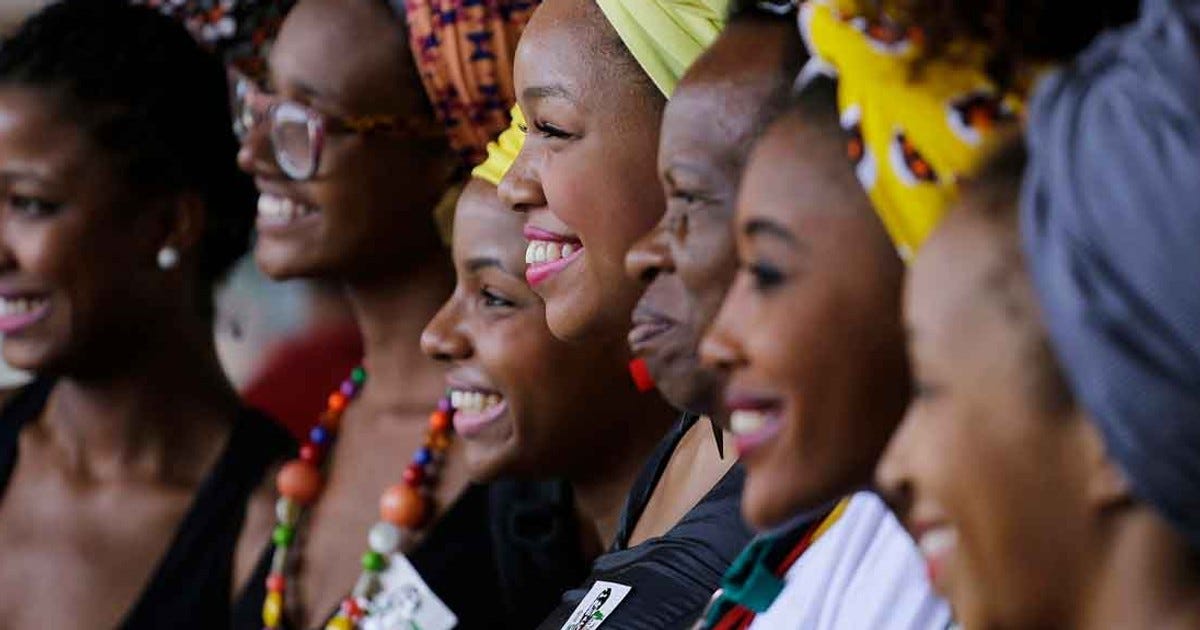Africa’s Top 10 Nations Empowering Women Entrepreneurs in 2025
In 2025, Africa stands at the forefront of a transformative wave in female entrepreneurship, with women across the continent driving innovation and economic growth. This surge is particularly evident in the creative economy, where sectors such as agribusiness, digital technology, fashion, and the arts are witnessing unprecedented contributions from women entrepreneurs. The Mastercard Index of Women Entrepreneurs (MIWE) highlights that African nations like Botswana, South Africa, and Ghana are leading in fostering environments where women-led businesses can thrive. This article delves into the top 10 African countries empowering women entrepreneurs in 2025, examining the unique factors propelling their success and the challenges that persist.
1. Botswana: A Beacon for Women in Business
Botswana has emerged as a leader in supporting female entrepreneurship, with a MIWE score of 56.3, the highest in Africa. The country's commitment to creating a business-friendly environment is evident through low corruption levels, accessible financing, and robust government support. Women entrepreneurs in Botswana are making significant strides in sectors such as tourism, crafts, and sustainable fashion. Initiatives like the Women’s Economic Empowerment Program provide training and micro-loans, enabling women to establish and expand their businesses. However, challenges remain, including the need for greater access to international markets and advanced technological tools.
2. South Africa: Nurturing Innovation and Creativity
South Africa ranks second with a MIWE score of 54.9, reflecting its supportive environment for women entrepreneurs. The country boasts a vibrant creative economy, with women leading ventures in digital technology, media, and the arts. Government-backed incubators and grant programs have been instrumental in fostering female-led startups. Despite these advancements, South African women entrepreneurs face challenges such as complex regulatory frameworks and economic disparities. Efforts to streamline business regulations and provide targeted support are ongoing to enhance the entrepreneurial landscape.
3. Ghana: A Hub for Female-Led Enterprises
Ghana's rich cultural heritage and dynamic markets have positioned it as a hub for female entrepreneurs, with a MIWE score of 51.1. Women in Ghana are prominent in agribusiness, textiles, and crafts, contributing significantly to the country's economy. Organizations like Guzakuza, founded by Nana Adjoa Sifa Amponsah, are pivotal in supporting women in agribusiness through training and mentorship programs. Challenges such as limited access to credit and high taxation persist, but ongoing reforms aim to create a more enabling environment for women-led businesses.
4. Nigeria: Harnessing Digital Platforms
As Africa's largest economy, Nigeria has a burgeoning community of women entrepreneurs excelling in sectors like fashion, beauty, and e-commerce. Digital platforms such as Instagram and TikTok have become vital tools for Nigerian women to market their products and reach wider audiences. However, high operational costs and limited access to venture capital pose significant challenges. Initiatives like the She WINS Africa program are working to bridge these gaps by offering training, mentorship, and networking opportunities to women entrepreneurs.
5. Uganda: Thriving in Agribusiness and Trade
Uganda boasts one of the highest rates of female entrepreneurship globally, with women playing key roles in agriculture, trade, and crafts. The government's initiatives to enhance access to capital and provide business training have been beneficial. Nevertheless, limited integration into global markets and inadequate infrastructure continue to hinder the growth potential of women-led enterprises. Efforts to improve market access and infrastructure are essential to sustain and scale female entrepreneurship in Uganda.
6. Ethiopia: Empowering Women in Agribusiness
In Ethiopia, women entrepreneurs are pivotal in the informal economy, particularly in agribusiness and small-scale manufacturing. Female-led cooperatives are on the rise, especially in rural areas, contributing to community development and economic growth. The government has introduced low-interest loans and training programs to support these initiatives. However, a significant gender gap in digital entrepreneurship persists, with limited access to e-commerce platforms for women. Addressing digital inclusion is crucial for the advancement of female entrepreneurs in Ethiopia.
7. Angola: Emerging Opportunities Amid Challenges
Angola is experiencing a surge in women-led ventures, particularly in retail and agriculture. Despite the lack of affordable business financing, women entrepreneurs are leveraging community savings groups and microfinance institutions to fund their businesses. The government's efforts to stabilize the economy and promote diversification are expected to create more opportunities for female entrepreneurs. Continued focus on financial inclusion and capacity building is necessary to sustain this momentum.
8. Tunisia: Leading in Tech and Innovation
Tunisia stands out in North Africa for its high percentage of women in STEM-based businesses. Over 40% of startups in the country's tech and innovation sector are female-led, supported by government-backed incubators and startup grants. A strong legal framework upholding women's rights in business facilitates access to funding and training. Nonetheless, cultural barriers still limit women's participation in certain male-dominated industries. Ongoing efforts to challenge stereotypes and promote inclusivity are vital for the continued growth of female entrepreneurship in Tunisia.
9. Morocco: Crafting Success in Creative Industries
Morocco's female entrepreneurs thrive in tourism, handicrafts, and fashion, with the country being a major exporter of women-led artisanal products. Microfinance programs have been instrumental in helping women establish and expand their businesses, particularly in rural areas. The government's policies to increase women's participation in leadership roles are reflected in the growing number of female-led enterprises. However, traditional societal expectations still create challenges for women seeking to scale their businesses beyond the local market. Addressing these cultural barriers is essential for the advancement of women entrepreneurs in Morocco.
10. Madagascar: Growing Through Agriculture and Textiles
Madagascar's female entrepreneurship is steadily growing, especially in the agricultural and textile industries. Women play a crucial role in vanilla and clove exports, sectors that contribute significantly to the country's economy. Financial exclusion remains a major barrier, with most women relying on informal savings groups instead of traditional banks. The rise of digital payment solutions is gradually improving access to capital for women-led businesses






